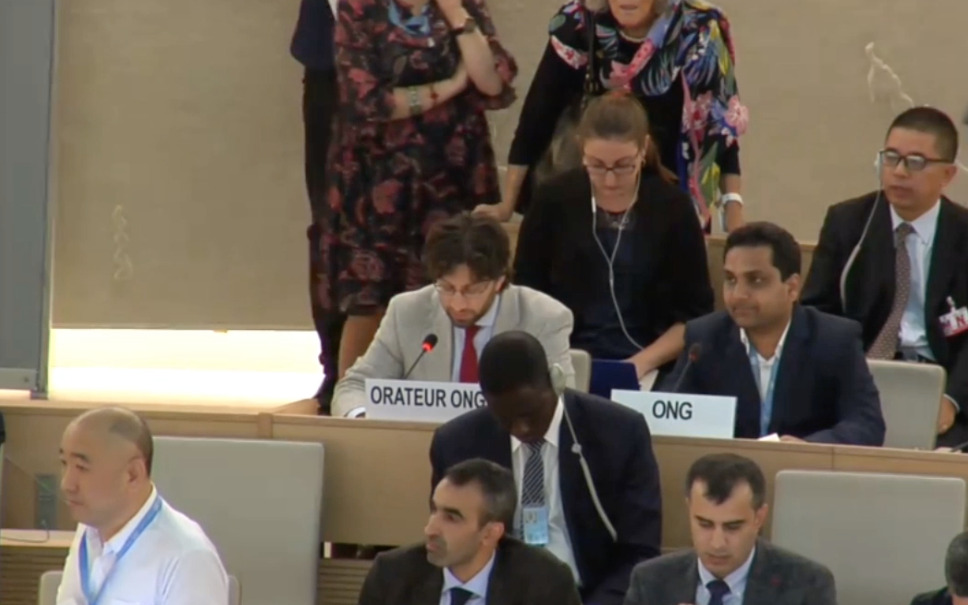On Tuesday, 12 September 2017, Americans for Democracy & Human Rights in Bahrain delivered an oral intervention at the 36th Session of the United Nations Human Rights Council (HRC). The intervention was delivered by ADHRB’s Advocacy Associate under the Council’s Item 3 Clustered ID with the Special Rapporteur on the human rights to safe drinking water and sanitation. To read and watch the intervention, please see below or click here for a PDF of the intervention.
Mr. Rapporteur,
Alsalam Foundation together with Americans for Democracy & Human Rights in Bahrain welcomes your recent report, and we agree that states should adopt water and sanitation policies to ensure equal access to safe drinking water and adequate sanitation. We are concerned that some states may not be meeting obligations outlined in the report for providing the necessary policy and infrastructural support that that would ensure accessibility of these services to all populations.
For example, in Bahrain, local activists report that public water is in large part only safe to drink in some areas of the where country’s ruling family resides. In many other areas of the kingdom, including parts of the capital, Manama, the public water maintained by the government is still partially salinated at a level where the residents are unable to drink it. Many Bahrainis resort to having to buy water for daily consumption, which may be unsustainable if the individuals cannot afford the cost of bottled water.
This is an issue that has been the focus of some local environmental activists, including activist Mohamed Khadim who was shot dead along with four others by Bahraini security forces during a peaceful protest in Diraz in May 2017.
Likewise, the government has not provided adequate sewage and drainage services in many villages in Bahrain. For example, when it rains heavily, many towns and villages remain flooded for days or even weeks. This seriously inhibits safe transportation as well as public health during times of heavy rain in Bahrain. This has also caused sewage system flooding in many areas, contributing to poor public sanitation.
Has the mandate addressed issues of selectivity and unequal access to fundamental government services and what recommendations would you have for redress for combating these disparities?
Thank you.





